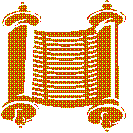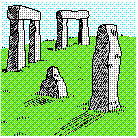Darkness to Light
Home Page
Books and eBooks by the Director
Different
Aspects of Apologetics
By
Gary F. Zeolla
What is apologetics? Theologian Millard J.
Erickson defines it as, "That branch of Christian theology
which has as its aim the reasoned advocacy of the Christian
faith. It includes both POSITIVE ARGUMENTS FOR THE TRUTH OF
CHRISTIANITY and REBUTTALS OF CRITICISMS LEVELED AT IT"
(Erickson, p.14).
Dr. Carl F. H. Henry further states, "The victory of
Christian truth requires AN EXPOSITION OF THE INTELLECTUAL
WEAKNESS OF COMPETING VIEWS, and an indication of just how and
why THE CHRISTIAN OPTION IS RATIONALLY SUPERIOR TO ITS
RIVALS" (p.B4).
The above two quotations bring out different aspects of
apologetics. Although there is overlap between them, for the
purpose of explanation, each aspect will be looked at separately.
"positive
arguments for the truth of Christianity"
 The first aspect
of apologetics is to present reasons why the Christian faith is
true. Peter mentions this point in his first epistle. He commands
believers to, "always be ready to give a defense to everyone
who asks you for a reason for the hope that is in you" (1Pet
3:15). The Greek word translated "defense" is apologia;
hence the term "apologetics" to describe this
discipline.
The first aspect
of apologetics is to present reasons why the Christian faith is
true. Peter mentions this point in his first epistle. He commands
believers to, "always be ready to give a defense to everyone
who asks you for a reason for the hope that is in you" (1Pet
3:15). The Greek word translated "defense" is apologia;
hence the term "apologetics" to describe this
discipline.
An example of this aspect of apologetics can be seen in
evangelistic methods Paul used with the Thessalonians (Acts
17:1-4). Paul "... REASONED with them from the Scriptures,
EXPLAINING AND DEMONSTRATING that the Christ had to suffer and
rise again from the dead, and saying, 'This Jesus whom I preach
to you is the Christ'" (vv.2,3).
Luke reports the result of Paul's preaching, "And some of
them [the Jews] were PERSUADED; and a great multitude of the
devout Greeks, and not a few of the leading women, JOINED Paul
and Silas" (v.4).
Following Paul's example, Christians in general should be
prepared to "reason" with non-believers. We need to be
able to "explain" what the basic truths of the Gospel
are and be prepared to "demonstrate" why they are true.
For instance, what does Paul mean when he says Jesus is
"the Christ?" If you are a Christian, would you
"be ready" to answer this question and demonstrate the
claim is true? If you are, then, God-willing, people will be
"persuaded" and will be "joined" with us.
Incidentally, "Christ" is not Jesus' last name.
There is much more to it than that. The term is actually a title
and includes within it all that the Hebrew Bible (the Old
Testament) prophesied about the Person and work of the
coming Messiah.
"rebuttals
of criticisms leveled at it"
 The
second aspect of apologetics is to defend Christianity from
arguments against it. Solomon alludes to this practice, "The
heart of the righteous STUDIES how to answer" (Prov 15:28).
The
second aspect of apologetics is to defend Christianity from
arguments against it. Solomon alludes to this practice, "The
heart of the righteous STUDIES how to answer" (Prov 15:28).
The word translated "study"
here is also used in Psalm 1:2; 63:6. In these verses it is
rendered "meditate" and refers to thinking purposely
upon the Word and Person of God, respectively. So Proverbs 15:28
is indicating believers should think carefully beforehand about
how to answer people's questions (see Col 4:5,6).
Some objections to the Christian faith can involve a
misunderstanding of the Christian teaching (Acts 17:18; Rom 6:1).
To answer such objections, Christians must first understand
Christian beliefs and practices ourselves (Acts 2:42; Heb
5:12-6:3). Next, we need to listen to the objector and discover
where the misconception is (Prov 18:13). Then we will be ready to
clarify our position (Acts 17:22f; Rom 6:2-8).
Another class of objections involve simply a lack of knowledge
on the part of the questioner. As an example, it is often claimed
that the copies of the original manuscripts of the Bible which we
have today are not reliable. But this claim shows a lack of
knowledge of the details of the transmission of the Biblical
texts.
 For instance,
"The Hebrew Bible has come down to us through the scrupulous
care of ancient scribes who copied the original text in
successive generations." And "There is more manuscript
support for the New Testament than for any other body of ancient
literature. Over five thousand Greek, eight thousand Latin, and
many more manuscripts in other languages attest the integrity of
the New Testament" (Parallel, p.xxiii).
For instance,
"The Hebrew Bible has come down to us through the scrupulous
care of ancient scribes who copied the original text in
successive generations." And "There is more manuscript
support for the New Testament than for any other body of ancient
literature. Over five thousand Greek, eight thousand Latin, and
many more manuscripts in other languages attest the integrity of
the New Testament" (Parallel, p.xxiii).
So to deal with these kind of objections, the Christian needs
to study and become informed of such facts (see the chapter "An Introduction to
Textual Criticism" in this writer's book Differences
Between Bible Versions).
There are more complex objections that could be and have been
raised. But the key word for dealing with these is still the same
- STUDY. Intellectual objections to the Christian faith deserve
and can be given logical answers. And Christians should "be
ready" to provide these answers "to everyone who
asks."
Paul summarizes this section well when he proclaims,
"Preach the word! Be ready in season and out of season.
CONVINCE, rebuke, exhort, with all longsuffering and
teaching" (2Tim 4:2).
"an
exposition of the intellectual
weakness of competing views"
 The third
aspect of apologetics is to demonstrate why other worldviews are
false. To do this requires a knowledge of the basic teachings of
these other belief systems. A good example of this can be seen in
Paul's evangelistic efforts in Athens
(Acts 17:16-31).
The third
aspect of apologetics is to demonstrate why other worldviews are
false. To do this requires a knowledge of the basic teachings of
these other belief systems. A good example of this can be seen in
Paul's evangelistic efforts in Athens
(Acts 17:16-31).
During his speech at the Areopagus, Paul systematically
refutes a series of beliefs of Grecian religions. He even quotes
from two Grecian writers! (v.28). So Paul obviously had studied
the prevalent religions of his time. This study prepared him to
witness to their adherents when he was given the opportunity. And
Paul's preparedness should be an example for us today.
There are different methods one can use to refute false
beliefs. First, if the person or religion accepts the Bible as
being the Word of God, the Scriptures can be appealed to (Isa
8:20). Second, if the religion attempts to make prophecies, their
accuracy can be checked. A true prophet of God will be 100%
accurate (Deut 18:21,22).
Third, even if prophecies are accurate, this doesn't
automatically mean the alleged prophet is from God. If the
fulfilled prophecies, or any other kind of miracles for that
matter, are used to try to lead people to a god other than the
God of the Bible, then the religion is still false (Deut 13:1-4).
Fourth, logical inconsistencies can be shown to exist in the
belief system. This was the purpose to which Paul quoted the
Grecian writers in Athens. Also, many religions today teach
salvation is by "faith plus works." But Paul
demonstrates the illogical nature this position in Romans 4:4;
11:6.
And many other methods can be utilized in this regard. But the
main point here is, to effectively show the "weakness of
competing views" requires a basic knowledge of the other
worldview's tenants and for one to look critically at these
teachings.
"the
Christian option is
rationally superior to its rivals"
 Jesus' confrontation with the Jewish leaders in
Matthew 22:15-46 provides a good example of the above three
aspects of apologetics being used together. And when each of
these aspects are performed, the last aspect follows logically.
Jesus' confrontation with the Jewish leaders in
Matthew 22:15-46 provides a good example of the above three
aspects of apologetics being used together. And when each of
these aspects are performed, the last aspect follows logically.
If "positive arguments for the truth of
Christianity" are given; if "rebuttals of criticism
leveled at it" are provided; and if "an exposition of
the intellectual weakness of competing views" is
accomplished; then only one conclusion is possible:
"The
Christian option is rationally superior to it's rivals"
(Col 2:8-10; 2Pet 1:16).
Books and eBooks by Gary F. Zeolla, the Director of Darkness to Light
Bibliography: Note: All emphases in quotations are
added.
All Scripture references from: The
New King James Version. Nashville, TN: Thomas Nelson
Publishers, 1982, unless otherwise indicated.
Erickson, Millard. Concise Dictionary of Christian Theology.
Grand Rapids: Baker Book House, 1986.
Henry, Carl, F.H. From a speech he gave at his 80th birthday
celebration: Valley News Dispatch, 2/13/93.
KJV/ NKJV Parallel Reference Bible. Nashville: Thomas
Nelson, 1991.
Different Aspects of Apologetics. Copyright © 1999
By Gary F. Zeolla of Darkness to Light ministry (www.zeolla.org/christian).
The above article originally appeared in Darkness to Light
newsletter in 1995.
It was posted on this Web site in July 1996.
 General Theology
and Apologetics
General Theology
and Apologetics
 Intermediate
Articles: General Theology and Apologetics
Intermediate
Articles: General Theology and Apologetics
 Text
Search
Text
Search  Alphabetical
List of Pages
Alphabetical
List of Pages  Subject
Index
Subject
Index
 General Information on Articles
General Information on Articles
 Contact Information
Contact Information
Darkness
to Light Home Page
www.zeolla.org/christian
Click Here for Books and eBooks by Gary F. Zeolla
 The first aspect
of apologetics is to present reasons why the Christian faith is
true. Peter mentions this point in his first epistle. He commands
believers to, "always be ready to give a defense to everyone
who asks you for a reason for the hope that is in you" (1Pet
3:15). The Greek word translated "defense" is apologia;
hence the term "apologetics" to describe this
discipline.
The first aspect
of apologetics is to present reasons why the Christian faith is
true. Peter mentions this point in his first epistle. He commands
believers to, "always be ready to give a defense to everyone
who asks you for a reason for the hope that is in you" (1Pet
3:15). The Greek word translated "defense" is apologia;
hence the term "apologetics" to describe this
discipline. The
second aspect of apologetics is to defend Christianity from
arguments against it. Solomon alludes to this practice, "The
heart of the righteous STUDIES how to answer" (Prov 15:28).
The
second aspect of apologetics is to defend Christianity from
arguments against it. Solomon alludes to this practice, "The
heart of the righteous STUDIES how to answer" (Prov 15:28). For instance,
"The Hebrew Bible has come down to us through the scrupulous
care of ancient scribes who copied the original text in
successive generations." And "There is more manuscript
support for the New Testament than for any other body of ancient
literature. Over five thousand Greek, eight thousand Latin, and
many more manuscripts in other languages attest the integrity of
the New Testament" (Parallel, p.xxiii).
For instance,
"The Hebrew Bible has come down to us through the scrupulous
care of ancient scribes who copied the original text in
successive generations." And "There is more manuscript
support for the New Testament than for any other body of ancient
literature. Over five thousand Greek, eight thousand Latin, and
many more manuscripts in other languages attest the integrity of
the New Testament" (Parallel, p.xxiii). The third
aspect of apologetics is to demonstrate why other worldviews are
false. To do this requires a knowledge of the basic teachings of
these other belief systems. A good example of this can be seen in
The third
aspect of apologetics is to demonstrate why other worldviews are
false. To do this requires a knowledge of the basic teachings of
these other belief systems. A good example of this can be seen in
 Jesus' confrontation with the Jewish leaders in
Matthew 22:15-46 provides a good example of the above three
aspects of apologetics being used together. And when each of
these aspects are performed, the last aspect follows logically.
Jesus' confrontation with the Jewish leaders in
Matthew 22:15-46 provides a good example of the above three
aspects of apologetics being used together. And when each of
these aspects are performed, the last aspect follows logically.